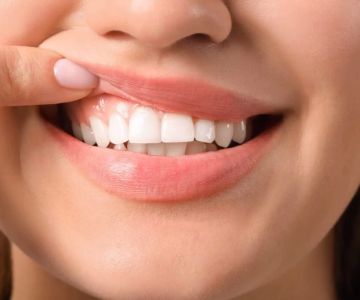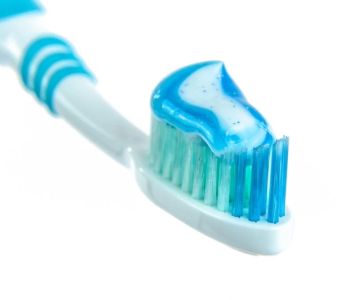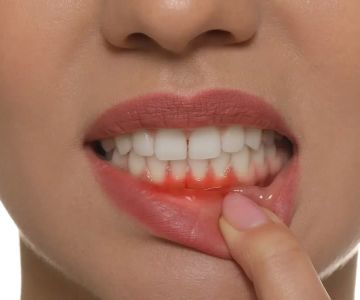Natural Remedies for Gum Pain
Gum pain can be a distressing experience, but there are several natural remedies that can offer relief. One of the simplest methods is using a salt water rinse. By mixing a teaspoon of salt in a cup of warm water and rinsing your mouth several times a day, you can reduce gum inflammation and irritation. Another effective option is oil pulling. Swishing a tablespoon of vegetable oil, such as coconut or sesame oil, around your mouth for 15-20 minutes daily helps remove bacteria. Turmeric paste is also beneficial. Making a paste with water and turmeric powder and applying it to the affected gums with a cotton swab can help due to the anti-inflammatory and antibacterial properties of curcumin.
Other Natural Approaches
Hydrogen peroxide, when diluted with water and used as a mouthwash, has antibacterial and antiseptic properties that can combat the bacteria causing gum pain. Tea tree oil, known for its multiple beneficial properties, can be mixed with warm water and used as a mouthwash or applied directly to the gums with a cotton swab. Aloe vera gel, with its anti-inflammatory and antimicrobial effects, can be mixed with warm water for a mouth rinse. Vitamin C is crucial for reducing inflammation and building healthy gums, so taking supplements or increasing intake of vitamin C-rich foods like oranges is advisable. Sage mouthwash, made by mixing dried sage leaves with water, has antiseptic and anti-inflammatory properties that can soothe gum pain.
Maintaining Good Oral Hygiene
Brushing your teeth twice a day with a soft-bristled toothbrush and fluoride toothpaste is essential for removing plaque and bacteria. Daily flossing helps reach areas that a toothbrush can't, preventing trapped food and plaque. Avoiding habits like smoking and using tobacco products is vital, as they increase the risk of gum disease. A healthy diet rich in fruits, vegetables, and whole grains promotes gum health, while reducing sugary snacks and drinks lowers the risk of cavities and gum problems. Regular visits to the dentist for checkups are key to identifying and addressing early signs of gum disease.
Causes and Remedies for Swollen Gums
Gum disease is the most common cause of swollen gums, resulting from poor oral hygiene. Pericoronitis, especially around wisdom teeth, can also cause swelling if food debris gets trapped. Malnutrition, especially vitamin C deficiency, can affect gum health. Poorly fitting dentures, pregnancy, certain medications, toothpaste allergies, and uncontrolled diabetes can all contribute to gum swelling. Home remedies include changing toothpaste, consulting your doctor about medications, quitting smoking, controlling blood sugar levels, reducing sugar intake, eating foods rich in minerals and vitamins, and limiting alcohol consumption.
Home Remedies for Gingivitis
Gingivitis is a common dental issue that can be addressed with home remedies. Clove oil mixed with coconut or olive oil and swished around the mouth can help due to its antiseptic and anti-inflammatory properties. Tea tree oil, when added to water or your toothbrush, can fight bacteria. Saltwater rinses reduce gum inflammation. Turmeric paste, lemongrass mouthwash, hydrogen peroxide diluted with water, baking soda paste, oil pulling with coconut oil, aloe vera gel, and vitamin C supplements are all effective options. However, if gum problems persist, it's important to see a dentist for proper evaluation and treatment. Maintaining good oral hygiene, a balanced diet, quitting smoking, and regular dental visits are also crucial for preventing and treating gingivitis.
Conclusion
In conclusion, treating gum pain naturally is achievable through a combination of home remedies and maintaining good oral hygiene. By using natural ingredients and following simple yet effective practices, you can alleviate gum pain, prevent gum diseases, and promote overall oral health. Remember, while home remedies can provide relief, it's always advisable to consult a dentist if problems persist or worsen to ensure proper diagnosis and treatment.







 Fifth Avenue Dental4.0 (750 review)
Fifth Avenue Dental4.0 (750 review) Universal Dentistry4.0 (144 review)
Universal Dentistry4.0 (144 review) Absolute Dental - Flamingo4.0 (582 review)
Absolute Dental - Flamingo4.0 (582 review) Access Dental, Dentures & Implants4.0 (426 review)
Access Dental, Dentures & Implants4.0 (426 review) Craig Q Adams, DMD5.0 (55 review)
Craig Q Adams, DMD5.0 (55 review) South Jersey Dental0.0 (0 review)
South Jersey Dental0.0 (0 review) The Importance of Oral Health Education During Pregnancy for a Healthy Pregnancy
The Importance of Oral Health Education During Pregnancy for a Healthy Pregnancy Best Tips for Brushing Your Teeth Properly for Healthy Gums: Essential Techniques for Oral Health
Best Tips for Brushing Your Teeth Properly for Healthy Gums: Essential Techniques for Oral Health Why Skipping Dental Checkups Can Lead to Bigger Oral Health Problems
Why Skipping Dental Checkups Can Lead to Bigger Oral Health Problems Advantages of Porcelain Dental Restorations
Advantages of Porcelain Dental Restorations How Can Diabetes Cause Tooth and Gum Problems? Preventing and Managing Oral Health Issues
How Can Diabetes Cause Tooth and Gum Problems? Preventing and Managing Oral Health Issues Healthy Habits for Promoting Good Oral Health and Hygiene: Tips for a Healthy Smile
Healthy Habits for Promoting Good Oral Health and Hygiene: Tips for a Healthy Smile